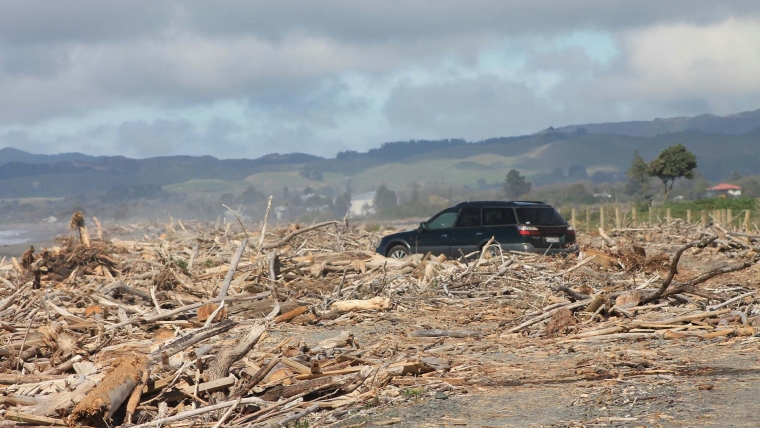
Feedback on the proposed National Policy Statement for Natural Hazards is being processed and RMA Reform Minister Chris Bishop is set to make decisions shortly, with plans to introduce it by the end of the year.
But an organisation representing general insurers in New Zealand says the proposed national statement doesn't go far enough.
The Insurance Council of New Zealand I Te Kāhui Inihua o Aotearoa (ICNZ) is calling on the Government to provide a “policy with real strength” and wants stronger national direction when it comes to natural hazard risks.
The National Policy Statement for Natural Hazards (NPS-NH), which looks at the national direction on managing natural hazard risk, falls under the Government's Resource Management Act (RMA) reforms, and the Government has been consulting on this national policy.
ICNZ’s chief executive Kris Faafoi says natural hazard risks are intensifying with science indicating the prospect of more frequent and severe climate-related events.
Reducing the risk would keep insurance accessible for communities, he says.
Faafoi says ICNZ supports the Government’s focus on strengthening the planning system to deal with natural hazards. But the proposed provisions for a new NPS don't go far enough.
Councils were already following the intent of the proposed provisions for the NPS in their natural hazard decisions, he says.
"What's needed now is a policy with real strength.”
"We support strengthening the NPS to give councils greater confidence to stop development in high-risk areas. We believe the NPS in its current form creates more uncertainty which may increase the risk of councils having their decisions relitigated," Faafoi says.
ICNZ and its members have been talking with councils, Faafoi says, and they agree that clearer rules and stronger tools are needed to help them make “better decisions to reduce risk and protect their communities”.
"This will also support the future accessibility of insurance in these areas.”
Faafoi says the proposal risks undermining “national consistency” by offering too much flexibility and this could “dilute the effectiveness of the policy”.
"A clear and strong national direction will help lay the foundation for a more resilient future that protects communities, supports informed planning decisions, and ensures insurance remains accessible.”
More direction to follow
Minister for RMA Reform Chris Bishop says: “The ICNZ submission supports the NPS-NH as an important first step. I see it as exactly that. I intend for more direction to follow as we reform our resource management system.”
Bishop says managing risk from natural hazards is a key objective for the new system and requires a “carefully calibrated” approach.
“In the meantime, we propose this national direction to provide a stronger direction to take a risk-based approach and a nationally consistent base definition of ‘significant risk’."
He says the proposed national direction is designed to have a “more immediate impact” and can be easily transitioned into the new system.
Alongside this, Bishop says, one of the changes to the RMA will be about providing councils with more certainty about when to refuse a land-use consent or attach consent conditions where there is significant risk from natural hazards.
3 Comments
Searise, earthquakes, slips, excess rainfall. Would rule out a lot of NZ.
Direction: Get insurance, do not expect the government to fix your issues or it will bankrupt the country, make decisions accordingly knowing this, protect yourself and your land as best you can, mitigate risk as best as possible, learn skills to help yourself and others in a crisis, and be understanding of worst case scenarios and that they can happen, and are outside our control weather-wise.
Blunt, yes, but realistic, also yes. We cannot rely too heavily on the system.
Require 30-year guaranteed building insurance for new builds - index-linked to building costs. Watch how many developments don't happen.
More seriously, we will be dealing with accelerating insurance retreat in the next 20 years. The idea that we just need to tweak the insurance market settings is nuts.

We welcome your comments below. If you are not already registered, please register to comment
Remember we welcome robust, respectful and insightful debate. We don't welcome abusive or defamatory comments and will de-register those repeatedly making such comments. Our current comment policy is here.